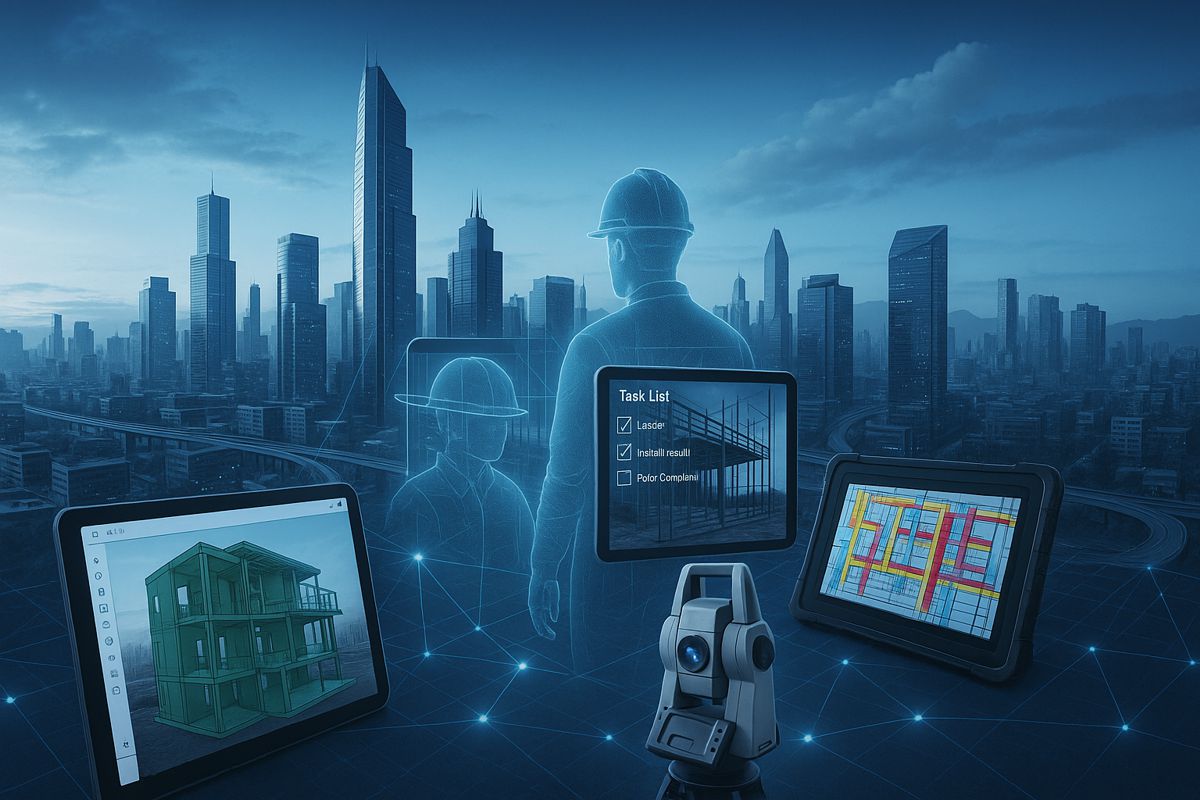Trimble Unveils 0-60 Challenge Trailblazing Startup Finalists for 2025
Trimble has revealed the sixteen trailblazing startups selected as finalists in its prestigious annual Trimble 0-60 Challenge. This accelerator programme champions innovation in the architecture, engineering, construction, and asset lifecycle management sectors, focusing on technologies that seamlessly integrate with Trimble’s open ecosystem to transform workflows and tackle industry pain points.
The competition, delivered in partnership with Trimble Ventures, celebrates solutions in three vital categories: Connected Data, Connected Design, and Connected Field or Jobsite. Many of these startups are harnessing artificial intelligence and advanced software to revolutionise how projects are planned, executed and managed.
Chris Peppler, Trimble’s vice president of platform and product, highlighted the programme’s mission: “Startups and smaller companies often lack the market reach and established connections needed to fully succeed in today’s competitive landscape. The Trimble 0-60 Challenge helps bridge this gap by providing entrepreneurs with the tools, expertise and support to more effectively build and market their solutions. We are proud to support these companies and help amplify their impact across the industry.”
Over a two-day kickoff event at Trimble headquarters in Westminster, Colorado, the finalists gained direct access to Trimble experts for technical guidance and integration testing. They will now spend twelve weeks refining their solutions before showcasing them at the Trimble Dimensions User Conference in Las Vegas, 10–12 November 2025. Winners will receive cash prizes, and all participants will gain visibility through the Trimble Marketplace.
Connected Data Finalists
- Datagrid – Specialising in high-performance data processing, Datagrid offers scalable solutions that enable contractors and project managers to access, clean, and analyse large datasets in real time. Its platform integrates with Trimble’s systems to optimise decision-making, reduce errors, and create predictive insights that improve productivity.
- Genda Inc – Genda provides workforce and equipment tracking solutions designed to boost site efficiency. Its AI-powered platform delivers real-time visibility of workers and assets, helping project teams minimise downtime and improve safety compliance.
- Join – Join focuses on collaborative preconstruction planning, enabling stakeholders to assess design options, budgets, and timelines through a single platform. Integration with Trimble tools streamlines design-to-delivery workflows, improving transparency and decision-making.
- Kamai – Kamai develops cloud-based project management platforms aimed at reducing complexity in infrastructure delivery. It offers powerful data synchronisation tools that integrate seamlessly with Trimble Connect, allowing better coordination between field and office.
- Permio – Permio simplifies the permitting process for construction projects by automating compliance checks and submission workflows. By integrating with Trimble’s solutions, it ensures that regulatory requirements are embedded into project planning from day one.
- TestFit – TestFit’s AI-driven building configurator helps architects and developers instantly generate and evaluate building layouts. It reduces design cycles from weeks to minutes, aligning perfectly with Trimble’s connected construction vision.
Connected Design Finalists
- Kestrel Labs – Kestrel Labs delivers advanced design visualisation tools, blending physics-based rendering with BIM data. Its integration with SketchUp and Tekla offers engineers and architects highly realistic previews, reducing costly design revisions.
- KOPE AI – KOPE AI brings generative design and AI optimisation to prefabrication and modular construction. By analysing project requirements, it automatically suggests optimised building methods that reduce material waste and cost.
- NavLive – NavLive focuses on real-time location intelligence, creating accurate, interactive maps for jobsite navigation. Integrated with Trimble’s geospatial solutions, it improves coordination for complex, multi-phase construction projects.
- Qonic – Qonic develops precision modelling tools that enhance BIM workflows. Its focus on data consistency and quality control ensures models remain accurate throughout the project lifecycle.
- Qubu – Qubu offers a design automation platform that accelerates the creation of structural models, particularly for large-scale commercial projects. Integration with Trimble tools speeds up the iterative design process.
- SWAPP – SWAPP automates the generation of architectural plans using AI, freeing up designers to focus on creative problem-solving. Its deep integration with Trimble software improves project accuracy and design efficiency.
- Ulama – Ulama builds collaborative design platforms for global teams, providing real-time co-authoring capabilities. With Trimble integrations, it enables architects and engineers to work seamlessly across time zones.
Connected Field or Jobsite Finalists
- Now Vision – Now Vision offers AI-powered visual inspection tools that detect defects and monitor progress directly from site imagery. Integration with Trimble ProjectSight® enhances reporting accuracy and speeds up issue resolution.
- Sensori – Sensori’s environmental monitoring systems track noise, dust, and vibration levels on construction sites. This data, combined with Trimble integrations, helps contractors maintain compliance and mitigate community impact.
- Mechasys – Mechasys provides laser projection technology that displays building plans directly onto jobsite surfaces with millimetre precision. Integrated with Trimble’s BIM solutions, it eliminates layout errors and boosts productivity.
A Platform for Industry Transformation
The Trimble 0-60 Challenge is more than a competition; it’s a launchpad for technologies with the potential to reshape the construction industry. Trimble Ventures backs these startups not only with capital but with technical mentorship, market access, and strategic insight.
This year’s finalists are united by a shared vision: to connect data, design, and field execution in ways that boost efficiency, reduce waste, and enhance collaboration. By integrating with Trimble’s ecosystem, these solutions are poised to have a far-reaching impact on construction’s digital transformation.
Looking Ahead to Demo Day
The grand finale at Trimble Dimensions promises to be a showcase of ingenuity. Attendees will have a front-row seat to see the industry’s future unfold, from AI-driven design to next-generation jobsite automation. As Peppler noted: “Attending Dimensions and watching Demo Day provides a unique chance to see firsthand the innovations that are reshaping how we design and build.”
If this year’s cohort is any indication, the future of connected construction will be faster, smarter, and more collaborative than ever.





























